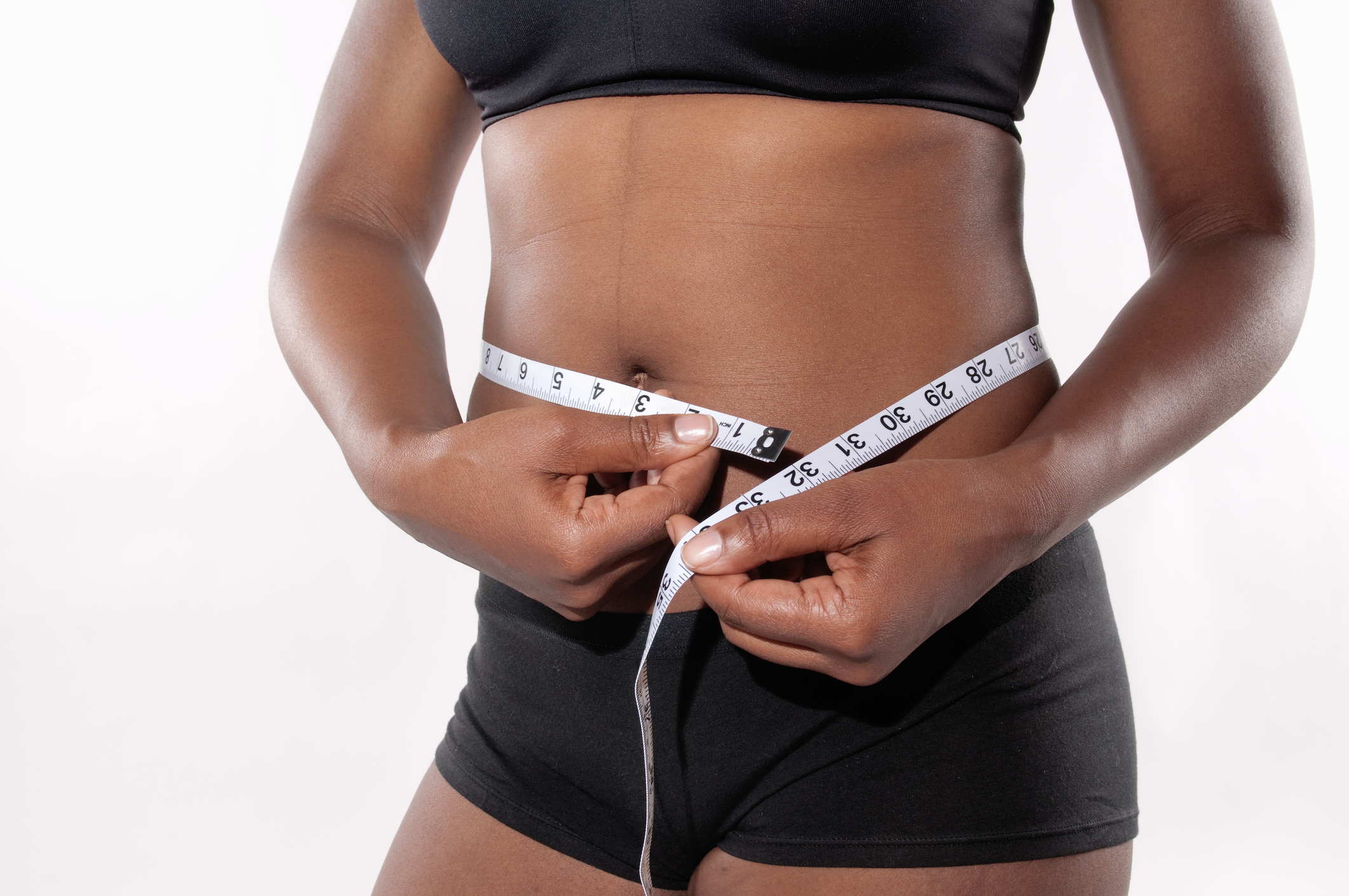 (BlackDoctor.org) – Wait! Before you decide to swear off all fat, carbs, etc. to help you shed weight for the summer, you should be aware that many of the most popular diets today, particularly the ones with strict restrictions, can actually hurt you.
(BlackDoctor.org) – Wait! Before you decide to swear off all fat, carbs, etc. to help you shed weight for the summer, you should be aware that many of the most popular diets today, particularly the ones with strict restrictions, can actually hurt you.
Here’s a breakdown of six of the most popular diets that may not be as safe as you think:
1. Low-Fat Diet
Cutting out fats can help you slim down, but only if you cut calories too. It’s also helpful for people with gallstones, pancreatic disease and certain other gastrointestinal disorders responsible for poor fat absorption, which leads to pain and diarrhea.
The Danger: First, if you’re avoiding all fat, you won’t have much food variety – boredom will strike early. Second, you won’t get all necessary nutrients. Your body needs some fat to absorb vitamins A, D, E and K and a host of health-boosting phytochemicals (plant compounds that act as cancer-fighting antioxidants).
A study in The American Journal of Clinical Nutrition showed that, after eating an oil-free salad of lettuce, spinach, carrots and tomatoes, people absorbed little of the phytochemicals beta-carotene, alpha-carotene and lycopene.
And if you’re cutting fat to lose weight, beware of fat-free cookies and desserts: Most have almost as many calories as regular ones.
Play It Safer: If you’re looking for a low-cholesterol, heart-healthy plan (and we all need one), simply cut out saturated and trans fats. You can still enjoy good-for-you fats found in fish, nuts, avocados, olives and vegetable oils such as olive, canola, sesame and nut. Just don’t go overboard: Fats are calorie-dense (about 120 calories a tablespoon).
An easy way to reduce fat and calories? Switch from full-fat animal products (regular cheeses and fatty meats such as salami and corned beef) to reduced-fat cheeses and lean proteins like fish and skinless chicken.
2. Gluten-Free Diet
Going gluten-free is trendy. Many people blame the protein found in some grains for ailments, including arthritis, depression and autism. So far, research on the impact of a gluten-free/casein-free diet on people with autism has not turned up links.
But only those sensitive to the gluten in wheat, barley and rye, or who have celiac disease – an inherited digestive disorder that damages the small intestine – should follow this diet. It has little benefit and leaves you more susceptible to nutrient deficiencies of iron or B vitamins.
The Danger: “A lot of gluten-free products aren’t fortified,” says Shelley Case, R.D., consulting dietitian and co-author of Gluten-Free Diet: A Comprehensive Resource Guide (Case Consulting Nutrition). “And gluten-free cookies, muffins and hamburger buns are often high in sugar and fat.”
People on gluten-free diets often eat white rice or rice foods, such as rice bread and crackers, she says, but rarely consume whole grains, which have more fiber and nutrients.
Play It Safer: When following a gluten-free diet, eat at least three servings of whole grains a day, such as brown rice, quinoa, amaranth, sorghum or millet. You can find recipes in Case’s book and at Celiac.com.
3. Low-Sodium Diet
You need to ease up on salt if you have high blood pressure, kidney disease or congestive heart failure. Unless, of course, your physician tells you otherwise.
Even without a doctor’s warning, you should still cut back: The recommended daily intake is 1,500 milligrams sodium (about 1 teaspoon of salt); most Americans eat more than the upper limit of 2,300 milligrams.
The Danger: The only downside? You’ll be cooking a lot. About 80% of our sodium intake comes from restaurant and prepared foods – not from a heavy hand on the salt shaker. And you may have to find other sources of potassium.
Play It Safer: Get more potassium, which counteracts the harmful effects of too much sodium and lowers blood pressure. Eat several servings daily of potassium-rich foods, such as salmon, broccoli, lima beans, spinach, oranges and tomatoes (unless your doctor nixes potassium because of kidney or other problems).
4. Vegetarian and Vegan Diets
A plant-based diet has many health benefits: It lowers cholesterol levels and reduces the risk of diabetes, heart disease, high blood pressure, gallbladder disease, type 2 diabetes, and colon and prostate cancers, says dietitian Mark Rifkin, R.D., president of Preventive Nutrition Services in Baltimore.
Vegetarians avoid animal flesh like beef, chicken and fish, but may eat eggs and dairy products, such as milk, yogurt and cheese. Vegans avoid all animal products including eggs and dairy.
The Danger: You could become deficient in protein, iron, calcium, zinc, iodine, omega-3 fatty acids, and vitamins D and B-12.
Also, many vegetarian diets – like the typical American meat diet – may be loaded with grease, fat and added sugars too.
“Pizza, fries, soda, ice cream, chips and cheese balls are, after all, vegetarian,” Rifkin says. So going vegetarian is not necessarily a “guarantee of good health.”
Play It Safer: If you cut out animal products completely, you’ll need to get vitamin B-12 from supplements or fortified foods. Vegans and vegetarians (who don’t eat fish) might become deficient in omega-3 fatty acids, iodine and vitamin D. Supplements can help. Here are the daily recommended amounts:
• Vitamin D: 400 IUs for adults, 600 IU for people 71 and older.
• Vitamin B12: 2.6 mcg (micrograms)
• Iodine: 150 mcg
• Omega-3: 1,500-2,000 mg of plant-based and 500-1,800 mg from fish
See a registered dietitian experienced in vegetarian meal-planning to review your diet.
5. Low-Carbohydrate Diet
Low-carb diets like Atkins have helped many people lose weight and curb appetite too. But like low-fat diets, they only work if you trim enough calories. You may shed pounds initially, but when compared to other weight-loss plans, that advantage usually disappears after several months to a year.
The Danger: If you’re filling up on unhealthy foods like bacon, greasy burgers and steaks, you’re not doing yourself any favors. They’re loaded with heart-clogging fat and cholesterol.
Plus, many carb-rich foods are necessary for your body, such as milk, yogurt, fruit, juice, oats, cereals, beans and corn. Without them, you won’t get enough fiber to stay regular and keep your gastrointestinal tract healthy.
In a healthy diet, carbs also promote memory and learning. A 2008 Tufts University study found that low-carb dieters didn’t perform as well on cognitive tasks as participants on a balanced plan that included carbs.
Play It Safer: Pick better carbs. Swap highly processed carbs like sweets, mac ‘n’ cheese and cereal bars for unprocessed or minimally processed foods like whole fruit, whole oats, kidney beans, sweet potatoes and whole-wheat pasta.
6. Diabetic Diet
Most diabetic diets control carbs because those raise blood glucose the most. Even if you don’t have diabetes, limiting unhealthy carbs such as sugar and white-flour foods can boost your health.
The Danger: Blood glucose control is critical to avoiding diabetes-related kidney, nerve and eye disease. That’s why it’s so tempting to focus all your dietary efforts on keeping your glucose in healthy range. (The target numbers are highly individualized, so ask your doctor for yours).
Play It Safer: Focus on your total diet, not just high-carbohydrate foods. Instead of severely restricting carb intake, spread them out evenly over your day. You’ll have more moderate jumps in blood glucose levels, and you’ll enjoy health-boosting, disease-fighting foods from each food group.
Use caution with sugar-free products, too. Some are sweetened with sugar alcohols such as sorbitol, mannitol and maltitol which your body can’t absorb well and may cause gas, cramping and bloating.
Work with a registered dietitian/certified diabetes educator who is also a certified diabetes educator to help plan meals to target your blood glucose.








